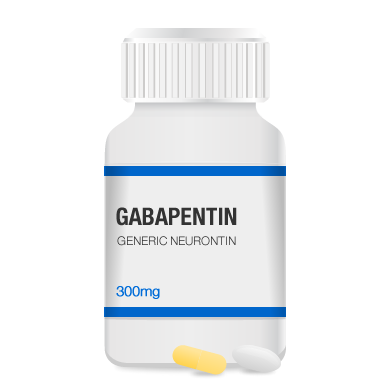Gabapentin may interact with other medications
Gabapentin oral capsule can interact with several other medications. Different interactions can cause different effects. For instance, some can interfere with how well a drug works, while others can cause increased side effects.
Below is a list of medications that can interact with gabapentin. This list does not contain all drugs that may interact with gabapentin.
Before taking gabapentin, be sure to tell your doctor and pharmacist about all prescription, over-the-counter, and other drugs you take. Also tell them about any vitamins, herbs, and supplements you use. Sharing this information can help you avoid potential interactions.
If you have questions about drug interactions that may affect you, ask your doctor or pharmacist.
Pain drugs
When used with gabapentin, certain pain drugs can increase its side effects, such as tiredness. Examples of these drugs include:
-
- morphine
Stomach acid drugs
When used with gabapentin, certain drugs used to treat stomach acid problems can reduce the amount of gabapentin in your body. This can make it less effective. Taking gabapentin 2 hours after taking these drugs can help prevent this problem. Examples of these drugs include:
-
- aluminum hydroxide
- magnesium hydroxide
Gabapentin interactions
- Adderall (amphetamine / dextroamphetamine)
- Advil (ibuprofen)
- Aleve (naproxen)
- Ambien (zolpidem)
- Aspirin Low Strength (aspirin)
- Cymbalta (duloxetine)
- Fish Oil (omega-3 polyunsaturated fatty acids)
- Flexeril (cyclobenzaprine)
- hydrocodone
- ibuprofen
- Klonopin (clonazepam)
- Lipitor (atorvastatin)
- Lyrica (pregabalin)
- methadone
- Metoprolol Succinate ER (metoprolol)
- Metoprolol Tartrate (metoprolol)
- Nexium (esomeprazole)
- Norco (acetaminophen / hydrocodone)
- oxycodone
- Percocet (acetaminophen / oxycodone)
- prednisone
- ProAir HFA (albuterol)
- Prozac (fluoxetine)
- Suboxone (buprenorphine / naloxone)
- Synthroid (levothyroxine)
- tramadol
- Tylenol (acetaminophen)
- Vitamin B12 (cyanocobalamin)
- Vitamin C (ascorbic acid)
- Vitamin D3 (cholecalciferol)
- Xanax (alprazolam)
- Zoloft (sertraline)
- Zyrtec (cetirizine)
What should I know about storage and disposal of this medication?
Keep this medication in the container it came in, tightly closed, and out of reach of children. Store the tablets, extended-release tablets, and capsules at room temperature, away from excess heat and moisture (not in the bathroom). Store the oral solution in the refrigerator.
It is important to keep all medication out of sight and reach of children as many containers (such as weekly pill minders and those for eye drops, creams, patches, and inhalers) are not child-resistant and young children can open them easily. To protect young children from poisoning, always lock safety caps and immediately place the medication in a safe location – one that is up and away and out of their sight and reach. http://www.upandaway.org
Unneeded medications should be disposed of in special ways to ensure that pets, children, and other people cannot consume them. However, you should not flush this medication down the toilet. Instead, the best way to dispose of your medication is through a medicine take-back program. Talk to your pharmacist or contact your local garbage/recycling department to learn about take-back programs in your community. See the FDA’s Safe Disposal of Medicines website (http://goo.gl/c4Rm4p) for more information if you do not have access to a take-back program.
